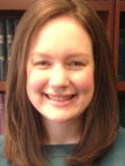Adaptation of a mutual exclusivity framework to identify driver mutations within oncogenic pathways Journal Article
| Authors: | Wang, X.; Kostrzewa, C.; Reiner, A.; Shen, R.; Begg, C. |
| Article Title: | Adaptation of a mutual exclusivity framework to identify driver mutations within oncogenic pathways |
| Abstract: | Distinguishing genomic alterations in cancer-associated genes that have functional impact on tumor growth and disease progression from the ones that are passengers and confer no fitness advantage have important clinical implications. Evidence-based methods for nominating drivers are limited by existing knowledge on the oncogenic effects and therapeutic benefits of specific variants from clinical trials or experimental settings. As clinical sequencing becomes a mainstay of patient care, applying computational methods to mine the rapidly growing clinical genomic data holds promise in uncovering functional candidates beyond the existing knowledge base and expanding the patient population that could potentially benefit from genetically targeted therapies. We propose a statistical and computational method (MAGPIE) that builds on a likelihood approach leveraging the mutual exclusivity pattern within an oncogenic pathway for identifying probabilistically both the specific genes within a pathway and the individual mutations within such genes that are truly the drivers. Alterations in a cancer-associated gene are assumed to be a mixture of driver and passenger mutations with the passenger rates modeled in relationship to tumor mutational burden. We use simulations to study the operating characteristics of the method and assess false-positive and false-negative rates in driver nomination. When applied to a large study of primary melanomas, the method accurately identifies the known driver genes within the RTK-RAS pathway and nominates several rare variants as prime candidates for functional validation. A comprehensive evaluation of MAGPIE against existing tools has also been conducted leveraging the Cancer Genome Atlas data. © 2023 American Society of Human Genetics |
| Keywords: | signal transduction; gene mutation; genetics; mutation; validation process; neoplasm; neoplasms; disease association; melanoma; computational biology; genetic association; genetic variability; mutational analysis; algorithms; false negative result; simulation; statistical analysis; algorithm; gene identification; carcinogenicity; genomics; ras protein; bioinformatics; false positive result; statistical model; mathematical computing; likelihood functions; procedures; driver mutations; mutual exclusivity; humans; human; article; oncogenic pathway; tumor mutational burden; rtk-ras |
| Journal Title: | American Journal of Human Genetics |
| Volume: | 111 |
| Issue: | 2 |
| ISSN: | 0002-9297 |
| Publisher: | Cell Press |
| Date Published: | 2024-02-01 |
| Start Page: | 227 |
| End Page: | 241 |
| Language: | English |
| DOI: | 10.1016/j.ajhg.2023.12.009 |
| PUBMED: | 38232729 |
| PROVIDER: | scopus |
| PMCID: | PMC10870134 |
| DOI/URL: | |
| Notes: | Article -- MSK Cancer Center Support Grant (P30 CA008748) acknowledged in PDF -- MSK corresponding authors are Xinjun Wang and Colin Begg -- Source: Scopus |
Altmetric
Citation Impact
BMJ Impact Analytics
Related MSK Work








